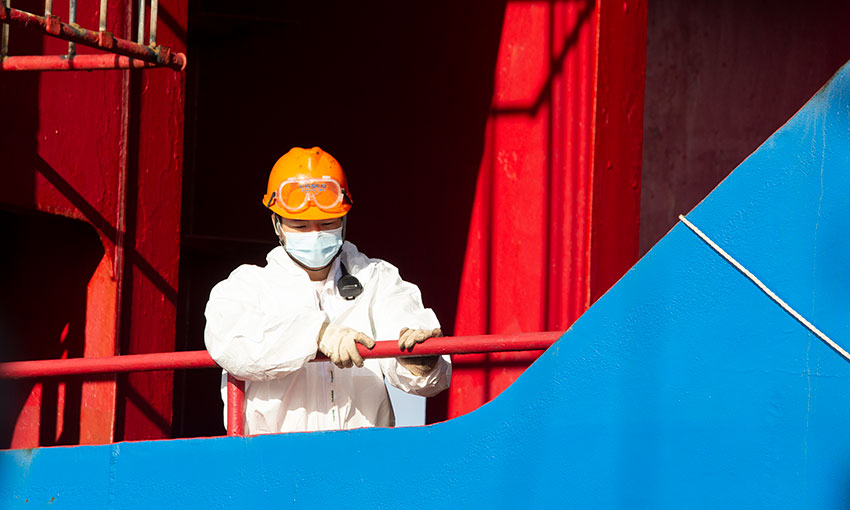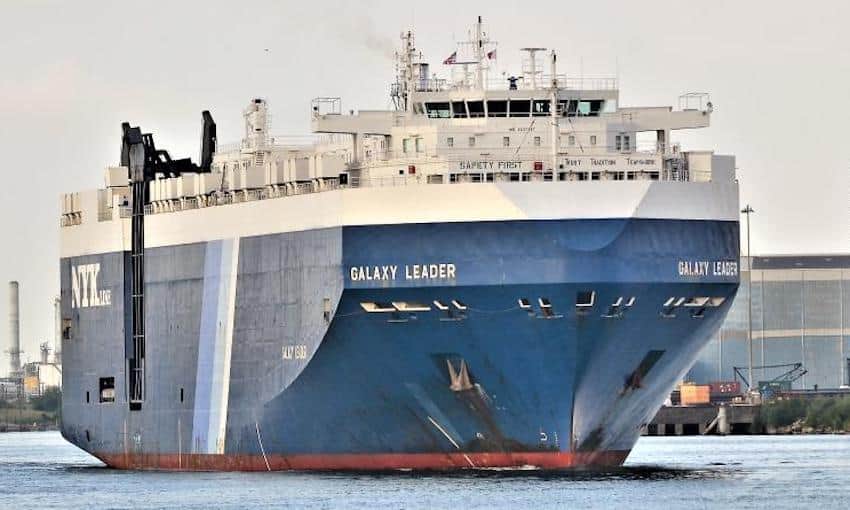HUMAN Rights at Sea, a non-profit seafarers’ advocacy group, has published an independent review chronicling an ongoing humanitarian crisis at sea and sustained violations of seafarers’ human and labour rights.
Drawing from 40 publicly accessible reports, articles and documents, this publication recounts the magnitude of risks to seafarers’ rights during the COVID-19 pandemic and highlights 10 areas of abuse.
According to HRAS, the crew change crisis saw around 400,000 seafarers stranded on their vessels at its height in 2020.
HRAS argues that long-term under-reporting of abuses in the maritime industry, combined with often ineffective application of existing legislation, has created a systemic threat to the adequate protection of seafarers’ rights which extends beyond the distresses witnessed during the early stages of the pandemic.
In its report, HRAS makes three key recommendations to better protect seafarers and their families through increased public transparency of cases, better media profiling, and the exposure of known abusers for increased deterrent effect.
The shipping industry is urged to rapidly address the recommendations and adopt these measures should it wish to truly be the global influencer that it claims to be.
HRAS CEO David Hammond said, “As supply chains keep moving, the stamping on seafarers’ fundamental rights quietly continues unabated as evidenced through international reporting.
“What is occurring behind the scenes can only be extrapolated from the limited cases which make it to the public’s awareness compounded by a top-down unwillingness and IMO policy not to expose abusers for an embedded fear of tainting reputations and upsetting states.”
In the report’s introduction, Mission to Seafarers Brisbane president Captain Ross Nicholls pointed out that the international shipping industry willingly responded to emissions reduction challenges “with gusto”.
“The global reliance on shipping supports this ongoing investment and the integration of technology in ship design and function onboard will ultimately either replace, augment, or enhance the role of those manning these ships: the seafarers,” Mr Nicholls wrote.
“While technology is also a catalyst for change in onboard functionality, the impact of COVID-19 on a seafarer’s life has been pronounced, highlighting that satisfaction with life onboard a ship has not kept pace with the development of the technology surrounding them. While international border closures and repatriation issues have created significant challenges for seafarers, ship operators, charterers, and some flag states; the welfare issues that were prevalent before COVID-19 have been exacerbated by the pandemic.”
Mr Nicholls wrote that some issues are addressed through revisions of the Maritime Labour Convention 2006, but others remain in the too hard basket, and these are the difficult issues to address across a truly global industry with a workforce comprising mainly of people from developing nations.
“There is no magic industry bullet that will address these issues in a short timeframe, but a truly unified approach and a determination to prioritise the criticality of these ongoing welfare issues will demonstrate the levels of support the industry has for creating and maintaining a sustainable career path and subsequent future for seafarers and their families,” Mr Nicholls wrote.
The full report can be found on HRAS’ website.





